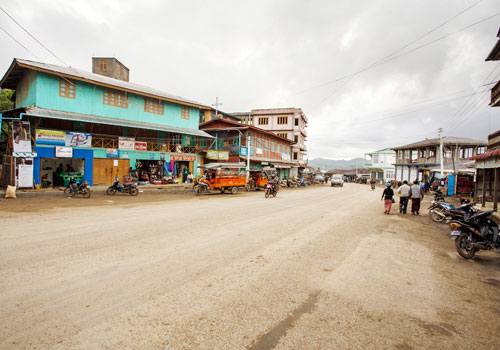Industrial zones will be built in two major cities in Chin State (Chine State Minister for Electricity, Industry, and Road Transportation)
7 กรกฎาคม 2560
Industrial zones will be built in two major cities in Chin State – Hakha and Paletwa, and local and foreign investment will be welcome, according to a state minister.
U Salai I Thakin, Chin state minister for electricity, industry and road transportation, told The Myanmar Times that surveys are being conducted in the cities to ensure that industrial zones can be established. A project plan will then be drawn up. Interested investors, state government officials and developers will be invited to invest and take part.
Hakha is the state capital of Chin State while Paletwa is a major town in the region.
“We cannot do these projects solely with the financial resources from the government money,” U Salai I Thakin said.
Big projects which exceed the government’s budget will be offered to developers through a public-private partnership (PPP) system, he said.
Public-private partnerships between a government agency and private-sector company can be used to finance, construct and operate projects, such as night markets and public road networks.
For example, the Yangon Bus Public Company (YBPC) is a PPP project, which was set up with K10 billion from the government and K2.5 million from five private companies. Similarly, the Yangon Region government originally planned to use PPP to operate the entire Yangon Bus System (YBS), but yet to be able to do so.
Unemployment rate is on the rise in Chin State. The state government has prioritised cutting unemployment rate, and the answer must be boosting the private sector to create employment opportunities. That is the goal of the state government, said U Salai I Thakin.
He added that once investments start flowing in and developers begin the projects in the industrial zones within the state, jobs will be created for local communities.
Apart from the industrial zones, investors have been invited to invest in the state’s energy sector, manufacturing industry and other sectors related to industrial production.
The Myanmar Times has yet to receive information on plans to conduct related environmental impact assessments and to resolve possible resettlement issues on these industrial zones.
Sean Bain, legal consultant from the International Commission of Jurists (ICJ), told The Myanmar Times on July 4 that industrial zones typically involve land acquisition and major infrastructure.
“Industrial zones typically involve land acquisition and major infrastructure,” he said as part of the general comments on the subject of environmental and human rights vis-a-vis industrial zones.
“So Myanmar law generally requires that environmental impact assessments are carried out before any development.
“The same applies to urban renewal projects, particularly when it involves the displacement of residents, regardless of their land tenure.
“The new environmental laws are an important part of Myanmar’s reform process, in place to facilitate responsible rather than exploitative investment, so it is critical that they are both followed and enforced,” he added.
Mr Bain said that past experiences suggests that human rights violations are linked to environmental regulations.
“Experience shows that non-compliance with environmental regulations risks leading to human rights violations – bad for Myanmar’s residents as well as investors,” he explained.
(The Myanmar Times: http://www.mmtimes.com/index.php/business/26700-state-capital-and-major-city-in-chin-state-embrace-industrial-zones.html )











